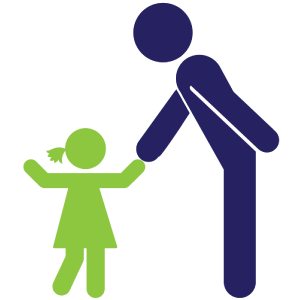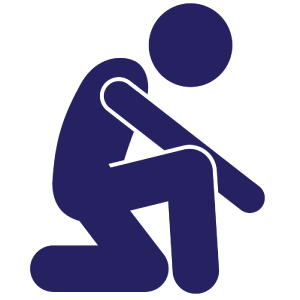Click here to access the Ages and Stages Charts. These charts from National Fatherhood Initiative® will help you learn about your children’s development and the milestones for their age. (Scroll through the charts to find the information for your children’s ages.) The best thing about this tool is the tips for helping your children reach their milestones.
Be cautious when using this tool or any other on child development. Take the information with a grain of salt in terms of what it means about your children and your role in their development. These charts can raise concern. Some dads think they should know this stuff. No one knows this stuff cold. Even doctors keep copies of these kinds of charts around their offices to use.
The Ages and Stages Charts help you to know about your children’s development in the present and future. Don’t use the charts like box scores or report cards. And never use them to compare your children to each other or to other children. They are road maps that give you a little guidance about what is coming around the corner. They’re simply a tool to do the job at hand, like a good socket wrench set or software program.
10.2 What Else
Learn how much impact you have and don’t have on your children when it comes to their development.
There are two large forces that affect how children develop: nature and nurture.
Nature:
Nature is the traits that your children are born with and that don’t change, such as race, sex, and hair and eye color. These are traits that you can’t affect.
Nurture:
Nurture is the way you raise and treat your children. Nurture affects some traits, such as self-worth, how a child treats others, and what a child does for a job as an adult.
The way you raise your children can strengthen a natural weakness or weaken a natural strength. You can bring out and grow your children’s natural talents. You can also suppress and not allow them to develop to their fullness. You can get your children training to run faster, for example, but your children can only run as fast as their natural gifts will allow. You can make sure your children eat healthy foods to grow taller, but your children will only grow as tall as their bodies will allow.
If you’ve gone through the topic Family History, you learned about self-worth and how you can build it in your children. You can also harm your children’s self-worth when you lack knowledge about child development. If you lack this knowledge, you’re in danger of setting goals for your children that they might not be able to reach by the time you think they should. And, depending on the goals, they might never reach them.





















